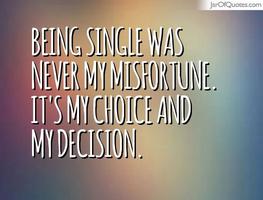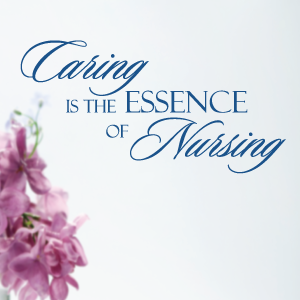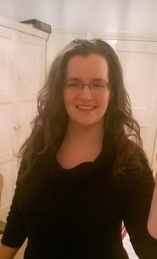
“To be a woman sitting by herself in a crowded New York City restaurant, amid the bustle and clatter of other people’s lives- what kind of thing was that to want?” (Katie Bolick)
Today I am thoroughly enjoying the book “Spinster: making a life of one’s own” by Kate Bolick. It is a book that combines a personal story with historical accounts of strong women, all written in an almost poetic flow, at all times celebrating the opportunity women have to choose a single life. The excerpt above resembles me going to Costa coffee, order their perfect latte, sitting there by myself observing and analysing the world while being completely and utterly happy.
I grew up in a small town and when I was young most examples I had of grown up women were those who were married in most cases with one or more children. The books I read were about women who were aiming to settle down. Within the church marriage was spoken about as the main thing to do when in your twenties, almost as if it was the only way to be a respected Christian and an accomplished person.
Being 29 and single is often looked at with surprise. I therefore always say that I am very happy single, as if I have to put something opposite the negatively laden word ‘single’. As though I have to make up for what they feel is lacking, but nothing I say or do seems to be enough. Kate Bolick mentions in her book that “even the law defines a single woman by what she lacks” and that being single is still perceived as breaking with social ideas of how things should be.
While growing up I tried to find role models I could relate with and who showed how a women can be strong on her own. I seemed to find them in for instance Dr Quinn Medicine Woman, a TV show about a female doctor in a small town in America. Especially during the first seasons there was single 30 year old Dr Mike herself, strong, independent and always winning against all odds. But there were so many other women at the heart of this show including Dorothy, a widow running the town newspaper, and Mary, a former prostitute who got married and then divorced to eventually move to the city and start a career at a large bank. Then there was Olive, unmarried, with her own ranch, Charlotte Cooper the town’s midwife who was left by her husband, Emma who broke off her relationship to take her dream job, Miss Morales who lost her husband and was now the school teacher, and Marjory, a suffragette who divorced her first husband and was unwilling to marry again. Obviously being single can include those who never married as well as those who were married before. To me it was the theme of women able to be independent, single and accomplished that inspired me and made this show a priority during my teenage life. And during my life I heard, saw and met single women who showed a kind of strength and thoughtful wisdom that I admire and hope to achieve one day.
Autonomy includes knowing who you are and what you want to do with your life. For some, maybe most women this will include a husband and a family life, but for me this includes being alone and the opportunity to explore the world by myself. Society may define single women by the lack of a husband, to me a single woman should be defined by her strength, independence, and her “austere, prideful autonomy” (Kate Bolick). Dr. DePaulo introduced the term ‘single at heart’ and I love this term as it represents how choosing to be single is not a lack of success or the prove of an unlovable character, it is rather just a different way to be:
“I had thoughts to think, a craft to learn, a self to discover. Solitude was a gift. A world was waiting to welcome me if I was willing to enter it alone.” (Vivian Gornick)
Today I am thoroughly enjoying the book “Spinster: making a life of one’s own” by Kate Bolick. It is a book that combines a personal story with historical accounts of strong women, all written in an almost poetic flow, at all times celebrating the opportunity women have to choose a single life. The excerpt above resembles me going to Costa coffee, order their perfect latte, sitting there by myself observing and analysing the world while being completely and utterly happy.
I grew up in a small town and when I was young most examples I had of grown up women were those who were married in most cases with one or more children. The books I read were about women who were aiming to settle down. Within the church marriage was spoken about as the main thing to do when in your twenties, almost as if it was the only way to be a respected Christian and an accomplished person.
Being 29 and single is often looked at with surprise. I therefore always say that I am very happy single, as if I have to put something opposite the negatively laden word ‘single’. As though I have to make up for what they feel is lacking, but nothing I say or do seems to be enough. Kate Bolick mentions in her book that “even the law defines a single woman by what she lacks” and that being single is still perceived as breaking with social ideas of how things should be.
While growing up I tried to find role models I could relate with and who showed how a women can be strong on her own. I seemed to find them in for instance Dr Quinn Medicine Woman, a TV show about a female doctor in a small town in America. Especially during the first seasons there was single 30 year old Dr Mike herself, strong, independent and always winning against all odds. But there were so many other women at the heart of this show including Dorothy, a widow running the town newspaper, and Mary, a former prostitute who got married and then divorced to eventually move to the city and start a career at a large bank. Then there was Olive, unmarried, with her own ranch, Charlotte Cooper the town’s midwife who was left by her husband, Emma who broke off her relationship to take her dream job, Miss Morales who lost her husband and was now the school teacher, and Marjory, a suffragette who divorced her first husband and was unwilling to marry again. Obviously being single can include those who never married as well as those who were married before. To me it was the theme of women able to be independent, single and accomplished that inspired me and made this show a priority during my teenage life. And during my life I heard, saw and met single women who showed a kind of strength and thoughtful wisdom that I admire and hope to achieve one day.
Autonomy includes knowing who you are and what you want to do with your life. For some, maybe most women this will include a husband and a family life, but for me this includes being alone and the opportunity to explore the world by myself. Society may define single women by the lack of a husband, to me a single woman should be defined by her strength, independence, and her “austere, prideful autonomy” (Kate Bolick). Dr. DePaulo introduced the term ‘single at heart’ and I love this term as it represents how choosing to be single is not a lack of success or the prove of an unlovable character, it is rather just a different way to be:
“I had thoughts to think, a craft to learn, a self to discover. Solitude was a gift. A world was waiting to welcome me if I was willing to enter it alone.” (Vivian Gornick)


 RSS Feed
RSS Feed
